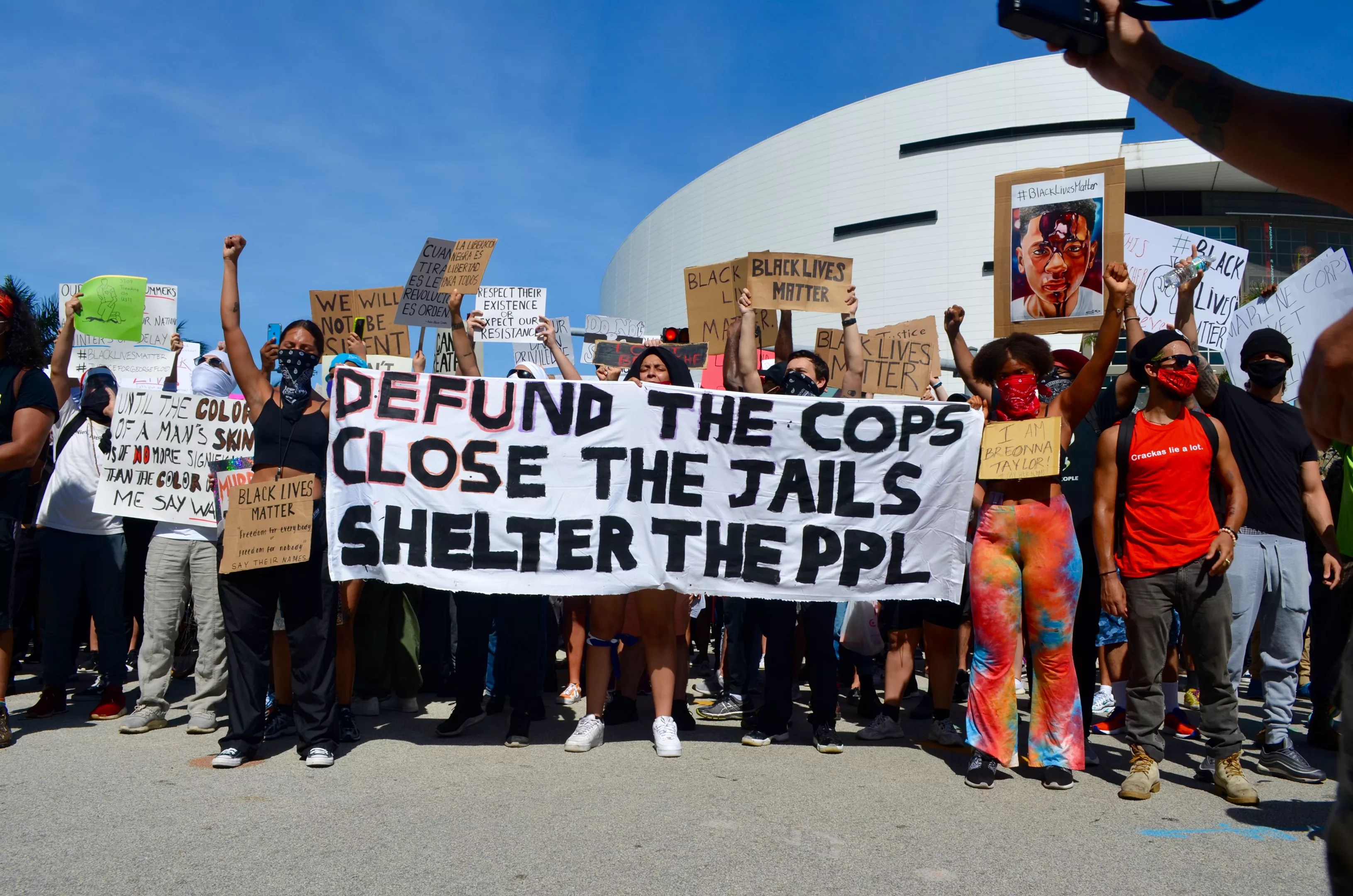
Photo by Atena Sherry

Audio By Carbonatix
For four days, Miami rallied, chanted, knelt, shut down traffic, and marched to protest the killing of George Floyd by Minneapolis police.
In demonstrations across the U.S., protesters have asked what it will take for local leaders to listen and make changes. They have asked how many more black men, women, and children will die, and how much longer they’ll have to fight the same battle.
But at a meeting yesterday, after expressing condolences to the Floyd family, Miami-Dade commissioners insisted that police and community relations are just fine here.
“We’re not perfect, but we’re not New York,” said Commissioner Esteban Bovo Jr., who represents District 13 in far northwest Dade and is running in the August 18 primary for county mayor. “We still have work to do in our community, but we’re not other places.”
There were no discussions about the use of tear gas and rubber bullets on Saturday. Commissioners made no mention of the arrest of a WSVN-TV producer, or of an incident in which Miami-Dade police wrestled a protester to the ground before arresting him. Instead, County Mayor Carlos Giménez commended the Miami-Dade and City of Miami police departments.
“I thought both departments showed extraordinary restraint and used the appropriate amount of force in order to make sure that we protect everybody’s right to protest,” Giménez said during the meeting.
While protesters and civil-rights advocates across the nation and around the world are demanding change and solutions, none were offered during Tuesday’s meeting in Miami-Dade.
Only Commissioner Eileen Higgins acknowledged that the commission can play a role in making the county a more equitable place.
“We have a say in building affordable housing and in how we create economic opportunities throughout the county,” said Higgins, who represents District 5, which includes downtown Miami and much of Miami Beach. “We have a say in how we move to a cashless bail system so folks that are poor aren’t stuck in jail just because they can’t pay bail. We all have our list of items that have risen from old, racist policies that continue. It is in our control on the commission to fix some of these local things.”
For starters, commissioners could take a look at the county’s own police force.
Last year, a Miami-Dade police officer lunged at a black woman, handcuffed her, placed her in a headlock, and dragged her to the ground after she called 911 to report that her neighbor had threatened her life. The year before, a Miami-Dade police officer was cleared after shooting and killing an unarmed black man in Liberty City. A 2018 New Times analysis found that Miami-Dade police issue citations to white people in possession of small amounts of marijuana while jailing black people for the same.
Nevertheless, at yesterday’s meeting Commissioner Sally Heyman seemed to say that when it comes to racial disparities in arrests, that argument “holds no water” because commissioners have embraced issuing civil citations instead of arresting people for certain misdemeanors.
Heyman, whose District 4 covers the northern reaches of Miami Beach and much of far northeast Dade, also had a bone to pick with several county municipalities that are “disproportionately… minority and African-American cities” for not partnering with the Miami-Dade Police Department.
District 10 Commissioner Javier Souto, who represents a chunk of west-central Dade, concluded that good recruitment, training, equipment, and supervision within the Miami-Dade Police Department is crucial. “Especially in a multiracial, multilingual, multicultural community like ours,” Souto added.
And, this being Miami, Souto threw in an obligatory Red Scare reference: “[T]o complicate things more, we are under the microscope, so to speak, of communist-controlled regimes such as Cuba, Venezuela, Nicaragua, and others.”